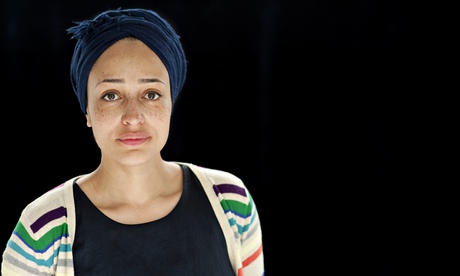
Months back I was trudging through the streets of Dalston when I spotted a copy of Simi Bedford's Yoruba Girl Dancing in a charity shop window. It evoked the same emotion that stumbling into an old school friend might – part nostalgia and part wonder at the old magic. I found myself inside the store reaching for it, just as I had done years ago as a teenager. The book is a hilarious, touching read about a Nigerian girl sent to boarding school in England. Back then, it resonated with me deeply. I too had been a young Nigerian girl sent to England at the age of eight to attend boarding school in Norfolk. Its recounting of otherness in an unfamiliar land made me laugh and recall my own experiences. There was something about that dancing silhouette on the cover that seemed hopeful, unburdened somehow, and, though I'd been enamoured of the talents of Roald Dahl and Harper Lee, it was refreshing to see an author who looked like me.
As I left the shop, it made me wonder: whatever happened to Simi Bedford? I know she wrote another novel, Not With Silver, but whatever happened not just to her, but to the career trajectories of other black and Asian female British authors?
I admire the tenacity of writers such as Andrea Levy, who deserved to garner more attention earlier in their careers. Andrea eventually went on to have great success, but there was little media interest or coverage when she first came on to the scene.
It seems the industry likes to champion one or two of us at a time, but no more. There also seem to be few black and Asian male writers. Lack of diversity overall is a problem on the literary landscape. Perhaps these writers didn't have the full support of their publishing houses, or were seen as risks and therefore not marketed properly – then dropped as soon as their books didn't make enough sales. It can be a difficult, fickle industry.
It's partly why I wanted to be the prize advocate for this year's SI Leeds Literary Prize for unpublished fiction by black and Asian women in Britain.
Last year I was intrigued to see the hype machine in full effect following the arrival on the scene of two international black female authors, Taiye Selassi and NoViolet Bulawayo. NoViolet's We Need New Names is a blisteringly good read, which deserved every bit of attention it received. While it was heartening to see black female authors getting that much of the spotlight, I was also bothered by an uncomfortable, niggling realisation. A black British female author wouldn't be celebrated in the same way.
Unfortunately, Britain doesn't champion the voices of its female writers of colour enough, preferring to fawn over international writers. Some will wheel out names of the usual suspects, Zadie Smith and Monica Ali. Yes, I know about them, but they are just two writers from the past 15 years, and are by no means a barometer to measure the typical representation of women of colour in the industry. Both studied at Oxbridge, and both are of mixed race. What does this say to black and Asian writers: do you have to have an elite education and a white parent for the publishing industry to be interested?
The success of the movie 12 Years a Slave shows that audiences are interested in good narratives and that there shouldn't be restrictions on whose stories get heard. I wonder how director Steve McQueen's success will translate more broadly. Will it encourage the UK to value British minority artists and give them much more support? I hope so.
And I hope this transfers to minority writers too. There needs to be more support and diversity in the publishing industry all around – grassroots bookshops, publishing houses and prizes acknowledging the rich tapestry of authors in this country. The UK needs to be proud of the eclectic range of authors, playwrights and poets it has. Let's celebrate their voices, buy their books and poetry collections, and see their plays. You never know: it may even encourage them to stick around.

